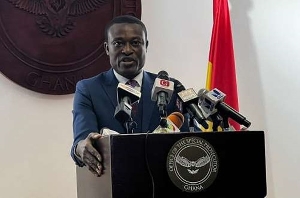Deputy Director-General (DDG) of the World Trade Organization, Alan Wolff has stated that, demographics and technology are going to change the face of trade after the pandemic. According to him, markets are going to continue to grow, but more so in countries that have expanding populations.
“Just as giant container ships, refrigeration and other transportation innovations revolutionized trade, continued innovations in the digital sphere will increasingly ease the flow of goods and services. The Green Revolution for the production of wheat and rice changed trade flows. Crop insurance is now being administered with the use of earth satellites. We will find out how Artificial Intelligence, drones, 3D printing, and biochemical breakthroughs, will change trade in ways we may not currently anticipate”.
Speaking to a virtual meeting of the World Free Zones Organization broadcast on Tuesday September 15, in Dubai, DDG Wolff said world trade is changing rapidly and the trading system must be designed to benefit all, while being fit for purpose.
He stated that WTO members are considering ways to make global trade rules more suitable to deal with any future pandemics, including improved information-sharing on measures taken, promoting open dialogue on common problems faced, and limiting the duration of trade-restrictive measures.
However, he cautioned that despite the opportunities created by the pandemic that enable countries to use technology in trade, “at the same time, challenges will appear. Science tells us that this is not the last pandemic. Severe weather events are becoming more common. Any system of international trade has to be flexible- it must accommodate innovation. But there must be management as well”.
According to him, no country is too remote to remain untouched by change and a such the trading system must be designed to be beneficial for all, while being fit for purpose. “The opportunities for developed and developing countries to work together for their mutual benefit will only increase, but to realize the benefits, the opportunities must be taken advantage of”.
He admonished Free zone operators to be on the leading edge of much positive change. He noted that they should be sure to share what they learn so that the global trading system can be continuously improved. “Telecommunications, the internet, and transportation are shrinking the world in many respects. It is up to those engaged in trade to make every effort to ensure that maximum benefits are available for all.
“The multilateral trading system exists for those engaged in commerce. Without it, the world would be a poorer place. The WTO rules underpins nearly all of world trade, including bilateral and regional trade agreements. It needs your support. It needs to be continuously improved. In that work you have an active part to play. I hope that you will do so.
“Trade is going to grow; the question is: how quickly? The pace may be largely due to domestic measures to stimulate demand as well as production in the coming phase of economic recovery. Global trade rules will play a role, however, members will see possibilities for improvements from direct experience. Policy-makers can be better informed if you take an active role in sharing your insights”.
Speaking on how governments will seek to regulate trade differently after this crisis in the medium to long term, DDG Wolff said;
“This is a story yet to be written. One can assume that there will at least be an analysis by governments and public authorities of adequacy of supplies to meet a future health crisis. Some products can be stockpiled. Identifying and arranging for more diverse sources of supply is likely. It would be sensible to consider how to maintain express delivery when commercial passenger traffic is cut off. Criteria for easing standards, and protocols for facilitating cross border freight and data flows can be established.
“The digital economy provides a wider range of options than those previously available. Means should be found to reduce the gap; the digital divide among nations. The E-Commerce negotiations at the WTO hold the promise of greatly improving the global trade rules for digital economy with benefits for all”.




















